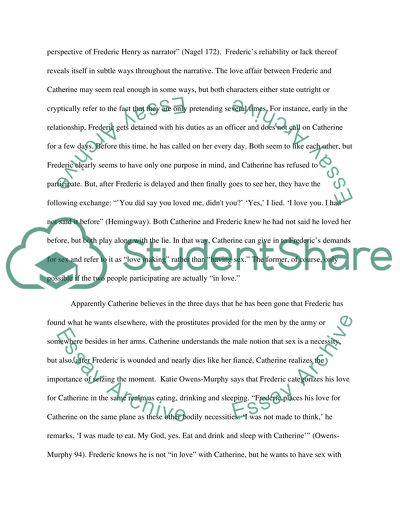Cite this document
(“A Farewell to Arms by Ernest Hemingway Research Paper”, n.d.)
Retrieved from https://studentshare.org/literature/1432818-a-farewell-to-arms-by-ernest-hemingway
Retrieved from https://studentshare.org/literature/1432818-a-farewell-to-arms-by-ernest-hemingway
(A Farewell to Arms by Ernest Hemingway Research Paper)
https://studentshare.org/literature/1432818-a-farewell-to-arms-by-ernest-hemingway.
https://studentshare.org/literature/1432818-a-farewell-to-arms-by-ernest-hemingway.
“A Farewell to Arms by Ernest Hemingway Research Paper”, n.d. https://studentshare.org/literature/1432818-a-farewell-to-arms-by-ernest-hemingway.


